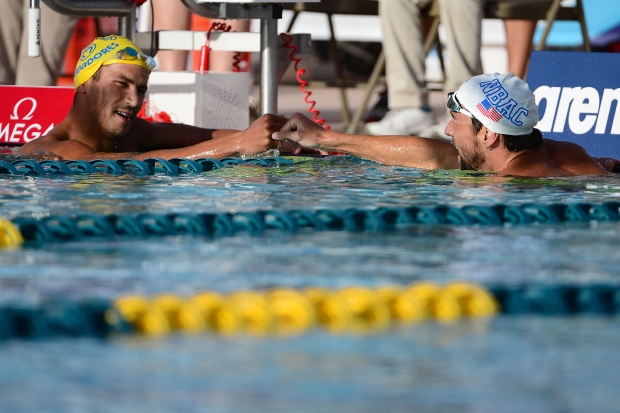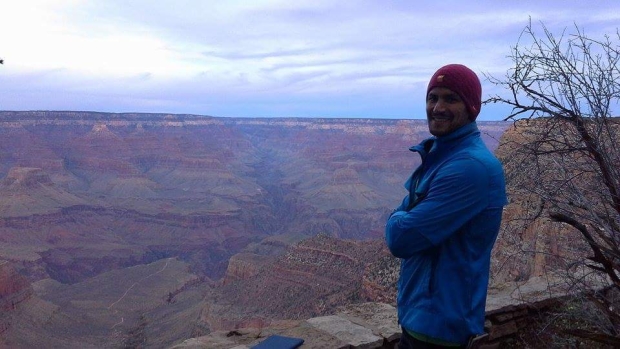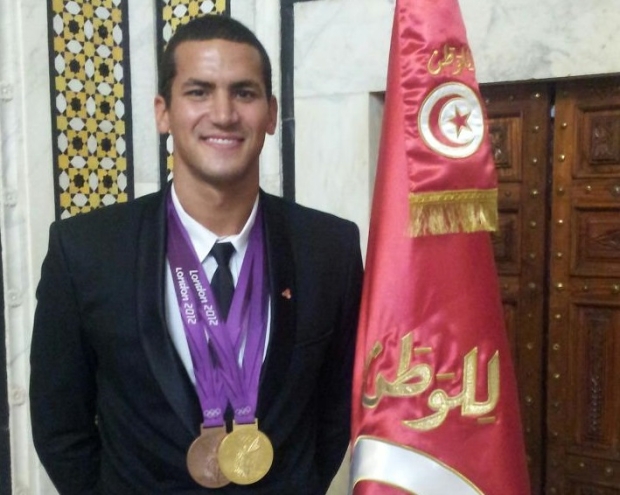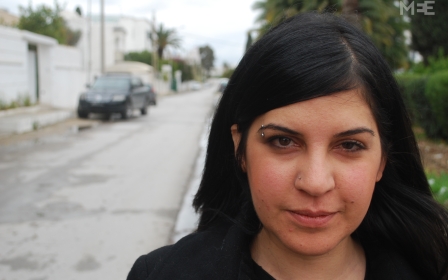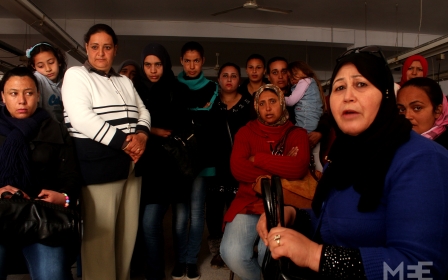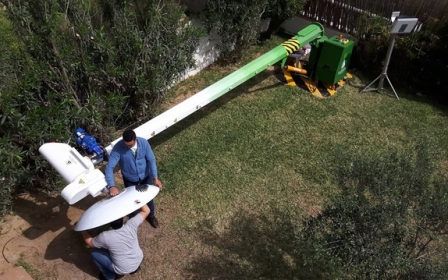Tunisia's Olympic shark: The swimmer who inspired a nation
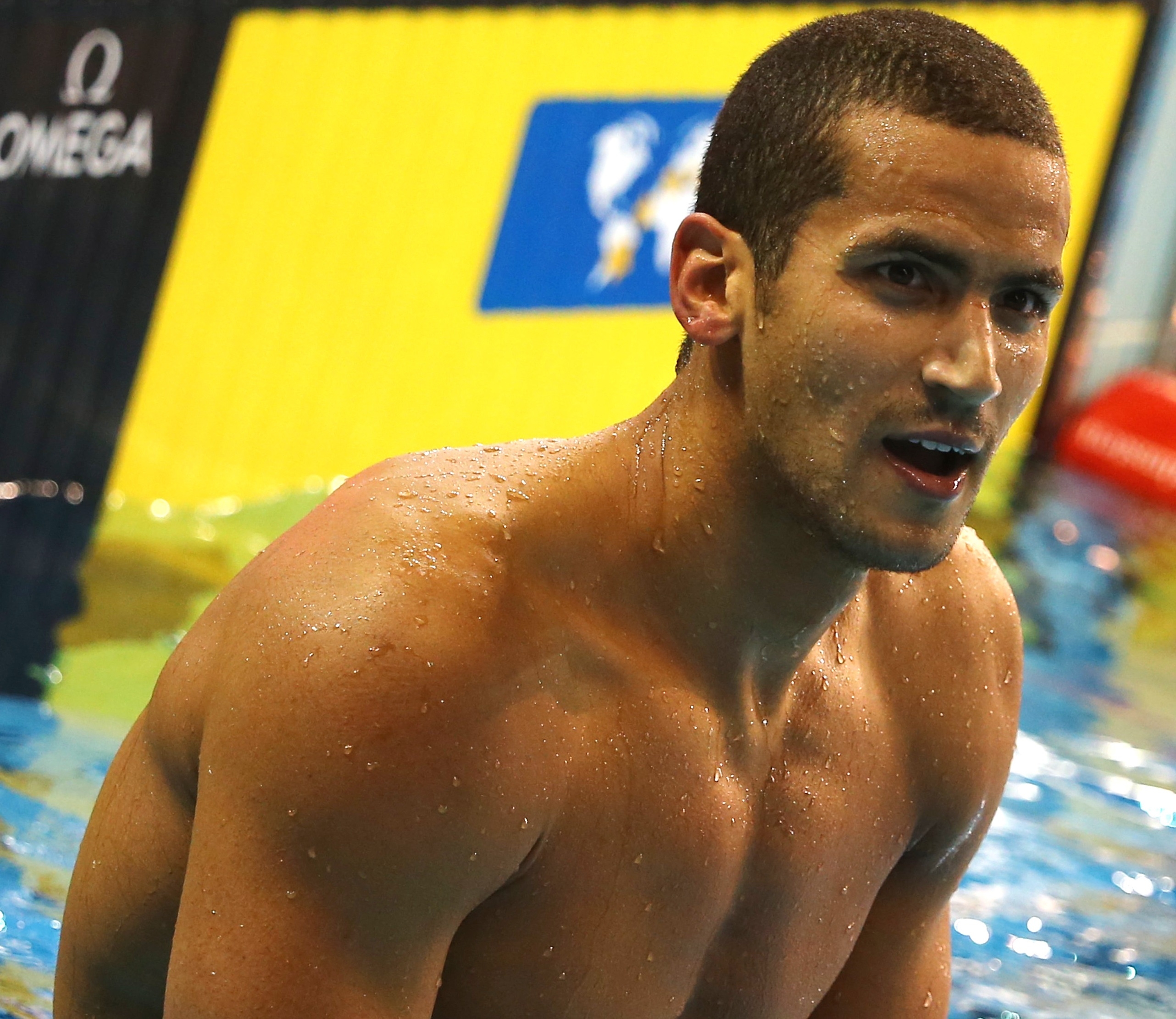
Legendary Tunisian swimmer Oussama Mellouli is training hard in California for the Rio Olympics. He is days away from qualifying at a race in Portugal on 12 June, which would give him a place at his fifth Olympics in a row - a feat never before achieved by a Tunisian.
It's eight years since his crowning glory at the Beijing Olympics but, speaking to Middle East Eye, he recalls it like it was yesterday.
Mellouli’s experience in the 1500m eight years ago is straight out of a Hollywood film. However, his journey to the medal podium is even more amazing. His story is one of legend.
Raising his head out of the pool in Beijing on 10 August 2008, Mellouli's eyes darted toward the scoreboard: fifth place. “Not again,” he thought to himself. For the third Summer Olympics in a row, Mellouli was experiencing disappointment and defeat in the 400m freestyle final. The Mediterranean Shark, as Tunisia’s prized swimming hero is known, had let down not only himself, but his nation.
“Immediately after my loss, I became very vocal with my coach about my disappointment and then went silent. I spent four hours without talking to anyone,” he tells Middle East Eye. Like most athletes, Mellouli had trouble accepting defeat. Nothing is more painful for a competitor. However, Mellouli had hidden reserves of will power, and was able to turn this into positive energy for the next race. “I took a step back. I paused and I gained some perspective. Something in my head just clicked,” he says, and he knew he had to just go for it with all he had. And he did.
'All you see is crystal clear water ahead of you'
A week later, Mellouli stepped into the pool for the 1500m freestyle final. “I walked in with the mindset that I had nothing to lose,” he recalls. For most of the race, Mellouli made sure he stayed within striking distance of the leader. At the 1100m mark, Mellouli made a move and took the lead by a body length. For the last 400m, Mellouli tells MEE, “I kept thinking ‘I’m one step closer to Olympic Gold.’ I was thinking this for five minutes. The race is so long that you have plenty of time to think.”
Mellouli had time to not only think, but also take in the sensory experience of being in first place in an Olympics final competition. “All you see is crystal clear water ahead of you. It’s a great feeling when you detach from the rest of the field,” he says while laughing, “Honestly, it was a miracle.”
As the race came to a close and Mellouli’s fingers touched the wall before anyone else’s, his mind screamed “I proved all the doubters wrong.” He jumped out of the pool while some of the other competitors were still swimming, ran over to his family, and gave his mum and brother a hug. Back home in Tunisia, his dad, sister, and other brother were screaming and crying. It was 4am local time, but that did not matter. Mellouli had just won the gold.
Growing up next to the beach
Mellouli was born in February 1984, in La Marsa, the coastal suburb of Tunis. He was the third son to his father, a police officer, and his mother, a primary school teacher, and has a younger sister. Their house, located only a five-minute walk from the beach, gave Mellouli the perfect environment to achieve his destiny as one of the greatest swimmers in the history of distance swimming.
Due to the close proximity of the sea, his mother realised that, like his two hyperactive brothers, Mellouli would gravitate to the sea as soon as he was old enough to walk. She signed him up for swim safety courses in a small, local pool at the age of two.
The next 10 years passed in a blur. Mellouli developed an “itch for competition and a winning edge”. He joined the national team at age 12, competing internationally at 13. Then in 1999, he had his first breakthrough: he won the bronze medal at the Arab Games. After the games, he went to a dinner hosted by Tunisia’s minister of sports for talented Tunisian athletes. Mellouli recalls with a smile how “the minister kept asking, ‘Who the heck is this kid?’”
Sent to France
At 15, Mellouli was by far the best swimmer in Tunisia. The country’s Ministry of Sports and swimming federation collaborated to provide the best framework for his international success. They provided him with a grant for both swimming and academics and Mellouli wound up travelling to the south of France to train and study at an elite athletic boarding school.
Mellouli’s transition to his new life was not easy. Used to a more relaxed life close to the beach, he was shocked by all of the new rules. “We couldn’t have TVs and lights had to be off by 10. I was also sharing a room with three strangers,” he admits. Mellouli also had trouble adapting to the new culture. “The environment was totally different and I had trouble adapting to the French language. It was a challenging experience.”
However, through adversity, there is redemption. Mellouli became a much smoother, more disciplined swimmer during his time in France. “I developed a very professional outlook at a young age because of my time there.”
After two years at the school, Mellouli travelled to Marseilles to finish his baccalaureate. He felt more comfortable in the port city, at ease by the sea.
Moving to America
Mellouli’s swimming prowess drew interest from top universities in America. He originally committed to swim competitively at the University of California at Berkeley. However, all of that changed on one fateful night. “I remember it perfectly. My phone started ringing, so I went outside to answer it. It was snowing,” he recalls. Mark Schubert, head coach at Univerity of Southern California and of the US Men’s National Team, was on the line. “Hi Oussama, I want you to come swim for us at USC,” Schubert told him. Mellouli, with very limited English, still understood what had been said. After that, he withdrew from his commitment to Berkeley and enrolled at USC in 2002.
Mellouli has been in Los Angeles ever since. He chose to major in computer science, but found it hard juggling both academics and international competition commitments, and fell behind a few semesters. During one finals session at college, Mellouli used the concentration drug Adderall in order to finish his essays on time. The drug, widely used by college students for studying, is banned in international swimming. Mellouli’s drug test came back positive and he received the worst news of his life: an 18-month ban from competitive swimming.
The ban prevented him from competing in the run up to the 2008 Olympics. “It was extremely hard. The ban finished right before the Olympics, so I had only one shot to qualify.”
News of his failed drug test travelled far up the chain of command, all the way to Zine Abedine Ben Ali, Tunisia’s then-president. “He was surprised, but he and the government supported me, despite the drug test,” he admits.
“Most people in America know what Adderall is so it wasn’t that shocking for them, but in Tunisia, people viewed it as though I tested positive for a drug like cocaine or methamphetamine.” Amidst all of this turmoil, Mellouli turned to his family to ride out the wave of trouble. “My family is my biggest support and backbone for everything.”
Mellouli was finally able to dive back into the pool and ended up qualifying for the 2008 Olympics. However, two weeks before he was set to compete in the finals, Mellouli noticed pain in his back. He had developed herniated disks. “Everything that could have gone wrong before the Olympics went wrong,” he says.
Despite the back issues, this did not stop him from taking gold in the 1500m.
Guilt by association
Upon returning home to his native country, the higher-ups in Tunisia’s swimming federation and his club team greeted him at the airport. He was then bussed to Hammamet to meet with the president and become "First Officer of the Republic".
From being an honoured son of Tunisia, he faced perhaps the greatest challenge of his life when, two years later, protests broke out across Tunisia, eventually leading to the overthrow of Ben Ali.
In the winter of 2011, Mellouli was training in California. Amidst the protests, he would Skype with his family while they remained barricaded inside their home, worried about vandals destroying their apartment.
After the Ben Ali government was deposed, the media began attacking anyone who had associations with the Ben Ali family. “They blamed me publicly and mentioned me among a lot of very bad people,” he says.
Back in 2008, Mellouli said he had no other option but to meet the president in an official capacity. “I was just doing my job, just getting recognition from the president. I saw myself as a soldier. I was not in a position to question Ben Ali.”
Mellouli took offence at the fact that people were blaming him and went on national television to rehabilitate his image. He went head-to-head with multiple journalists and managed, once again, to get the public back on his side. Even with the negative press that he received after the revolution, Mellouli is immensely proud of his nation. “After the revolution, I had a new purpose. I was very proud before, but I became even more proud.”
Seeing pictures of the martyrs of the revolution, he knew that he had a higher calling. “We athletes, we are the chosen ones. We have to perform and honour our country in memory of the martyrs.”
'Icing on the cake'
In the 2012 London Olympics, Mellouli took home the bronze in the 1500m and gold in the 10km marathon open water swim. “That was the icing on the cake,” he says with a wide grin. Standing at the podium, gold medal strapped around his neck, Mellouli listened to his country’s national anthem in the first Olympics since the revolution. “Everything took on a new meaning. I gained a new existence.”
Skyping with Middle East Eye from his dormitory room at his training centre in California, Mellouli’s smile lights up the screen. Ahead of his qualifying race for Rio, he has the high-level optimism only reached by athletes who generate maximum levels of endorphins on a daily basis.
Optimistic about future of Tunisia
With his swimsuit drying on a rack in the background, Mellouli says he remains hopeful about Tunisia’s future. “Always! We always have to be optimistic. No matter what happens.”
At the same time, Mellouli’s success grows in parallel to the amount of Tunisians joining IS in Libya, Syria, and Iraq. “It’s a problem of education. They get mixed up with the wrong people.” He continues: “They don’t even understand Islam. Islam is a religion of peace.”
Mellouli believes despair drives young men to join IS. “They probably saw a ceiling, but instead chose the wrong path.” He praises his country’s military for protecting fellow citizens, but understands the existing challenges. “Our military is great, but not very well-equipped. Tunisians fought the French occupation with brains, not weapons. We need to do the same now. We need to build the brains of all Tunisians.”
In terms of the future of swimming in Tunisia, a country in which football remains the most popular sport, Mellouli is largely optimistic. “We would benefit from better management on the technical level,” he says. However, he adds: “Tunisians are in a better place to succeed as swimmers than when I first started. Their aspirations have grown. The future of swimming in Tunisia is bright.”
Mellouli, a studious man who has already acquired multiple higher education degrees, plans on applying his combination of intelligence and swimming experience back in his home country. “I hope to stay in the US for some time more and then return to Tunisia and contribute to my country that gave me so much.”
Come this summer in Tunisia, all eyes will be glued to television sets as they watch Oussama Mellouli dive back into the water for one last shot at glory. Winning a medal would be the cherry on top of the cake. Yet even if he walks away empty-handed, Mellouli can take comfort in knowing that for most of his life, he inspired a whole nation and people throughout the world.
New MEE newsletter: Jerusalem Dispatch
Sign up to get the latest insights and analysis on Israel-Palestine, alongside Turkey Unpacked and other MEE newsletters
Middle East Eye delivers independent and unrivalled coverage and analysis of the Middle East, North Africa and beyond. To learn more about republishing this content and the associated fees, please fill out this form. More about MEE can be found here.


